Continuity, Renewal, and Joy
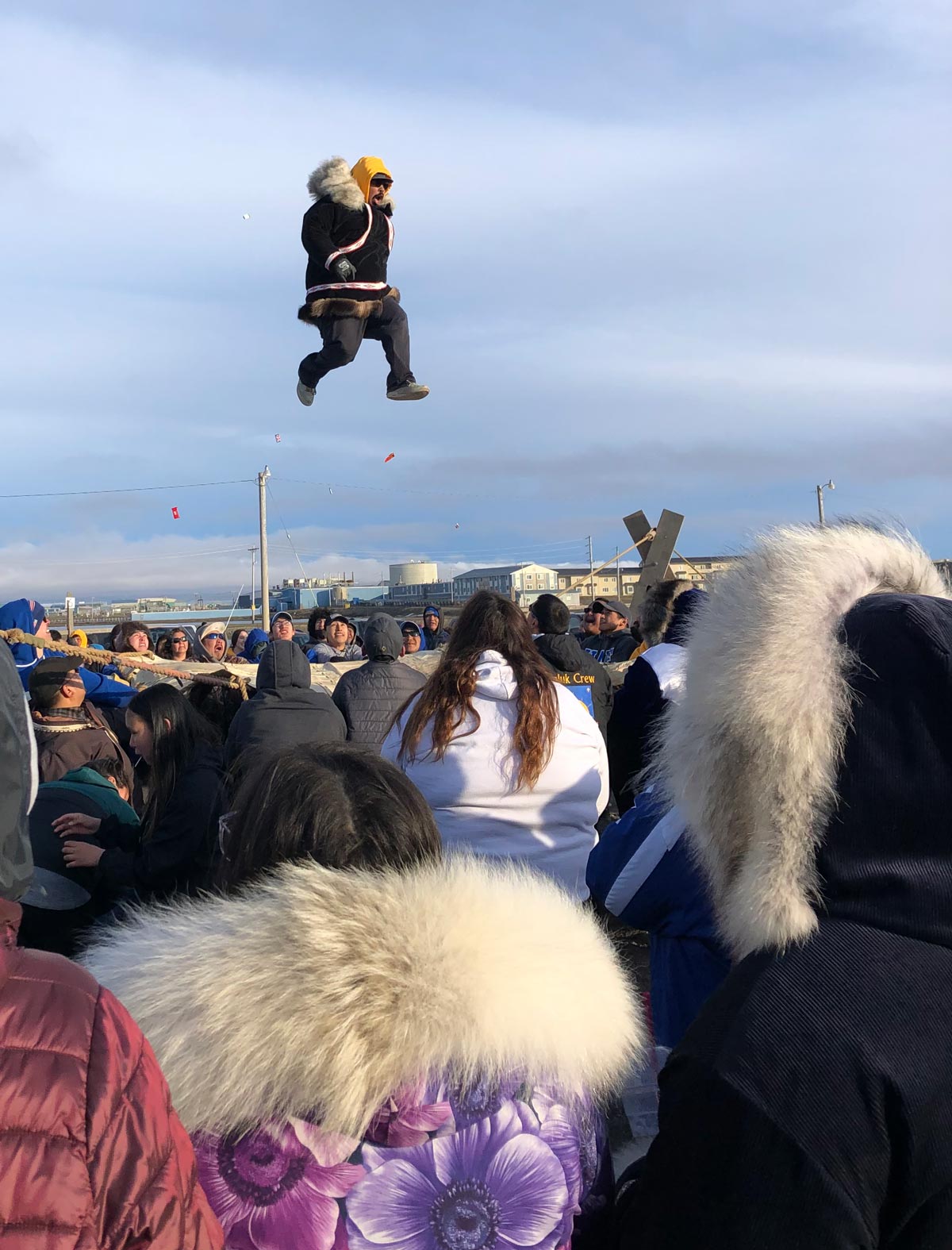
Continuity, Renewal, and Joy
or the Nalukataq whaling celebration in Utqiagvik last summer, the Oliver Leavitt Crew (OLC) and families took ten days to make 120 gallons of mikigaq (a fermented whale meat delicacy.) Each bucket had to be stirred at least five times a day to make sure the fermentation process was properly done.
Oliver Aveogan Leavitt has been Umailik (Captain) of his whaling crew since the early 1980s. That responsibility is a big one as he has to insure that the whaling vessel is safe, that the crew is trained, the whaling gun is properly loaded, the harpoons sharp and the ropes strong and properly knotted, and the floats ready. He also has to have enough sleds built to carry the catch home, snow machines maintained and gassed, the tents and stoves ready to use and the proper rifles available in the event polar bears show up. The wife of the umailik, in this instance Annie, is also the backbone of whaling, making sure there is enough food for the crew, that they are clothed and prepared for their vigil on the ice and the water. She makes sure that everything is cut and cooked properly and ensures that there are donut and soup makers. The effort is year round and the real work begins when they tow the agviq (bowhead whale) to the solid ice to be winched up and butchered.
The OLC flag is flown to let the community of Utqiagvik know of the catch and the success of co-captains Alex Kaleak and Avaiyak Burnell. The flag was designed by Oliver’s mother, Mary Lou Leavitt. It features a dark blue background, a center red diamond and two white bands anchoring the four corners. I asked what the symbolism was and gave it my own—white for purity, blue for the ocean and red for the blood vital for all mammals.
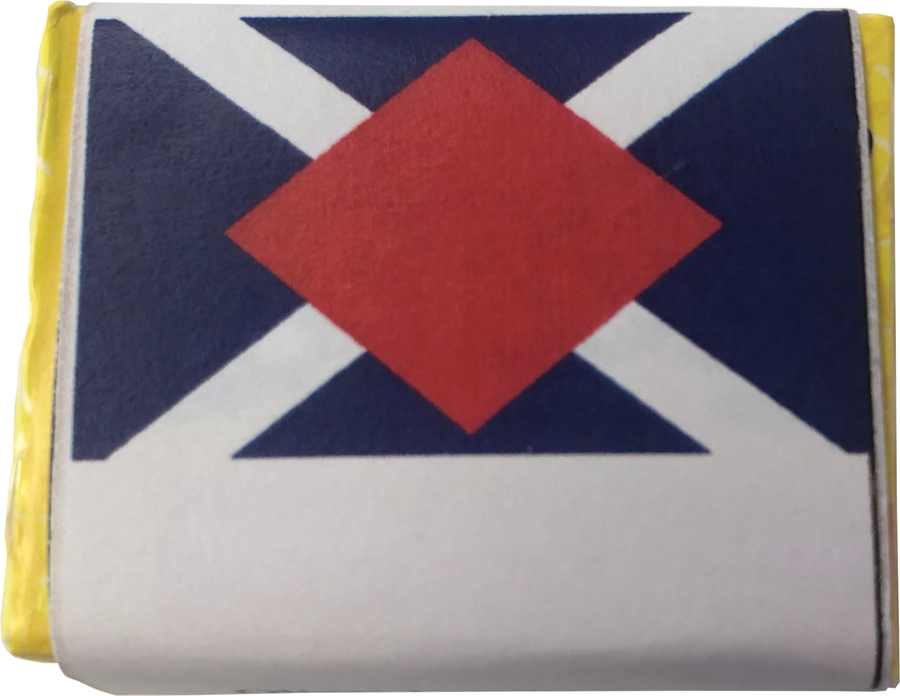
The whale has been butchered and distributed among the crew for safekeeping in their siqluaq (underground ice cellars). The crew families then begin the process of cutting up the large pieces into distributable sizes—the meat and maktak. The tail and fins are allowed to age and are placed in the center of the celebration for distribution to guests from out of town. Other family members have also been out hunting, plucking and preparing geese for hot soup during the day of the Nalukataq. Cases of soft drinks, coffee and tea have been purchased as well as cases of candy and gum, oranges and apples.
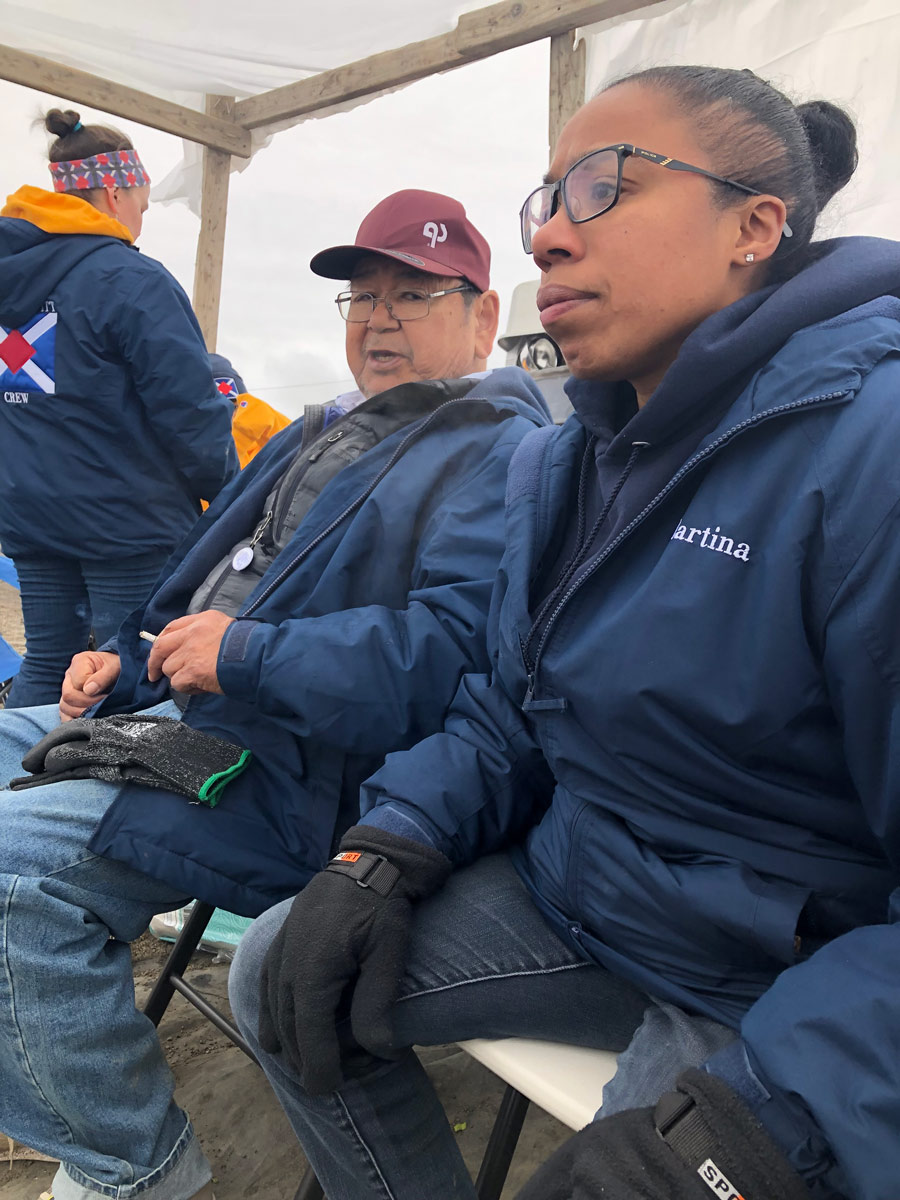
Oliver selects an Elder relative who opens with a speech and a prayer in Inupiatun to begin the festivities. At noon, they begin serving hot coffee and tea and homemade muqpauriaq (Inupiaq doughnuts), then comes the goose soup. Surprise candy and gum are tossed into the crowd from outside the windbreak and children go wild picking up the sweets. In the meantime, at 3pm, the distribution of the Mikigiaq begins with each family getting a Ziploc bag until its gone. Then the first round of whale meat distribution begins until all the boxes are empty and finally, the Arctic delicacy, the maktak of the bowhead is distributed and will eventually spread far and wide as visitors take home their share and give their families some of the catch. I used to take mine all the way to Washington, DC to share with friends there.
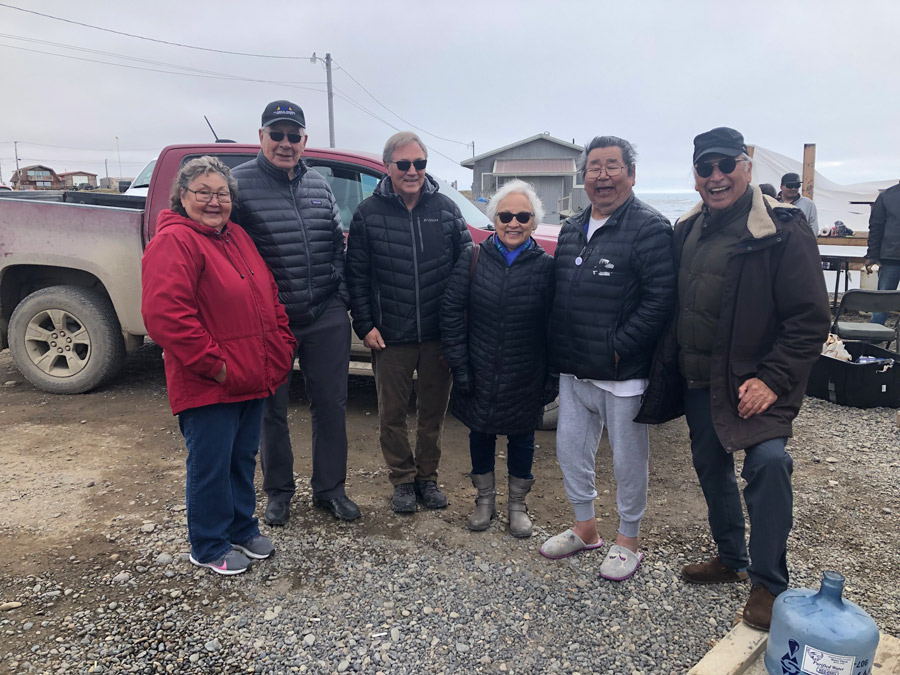
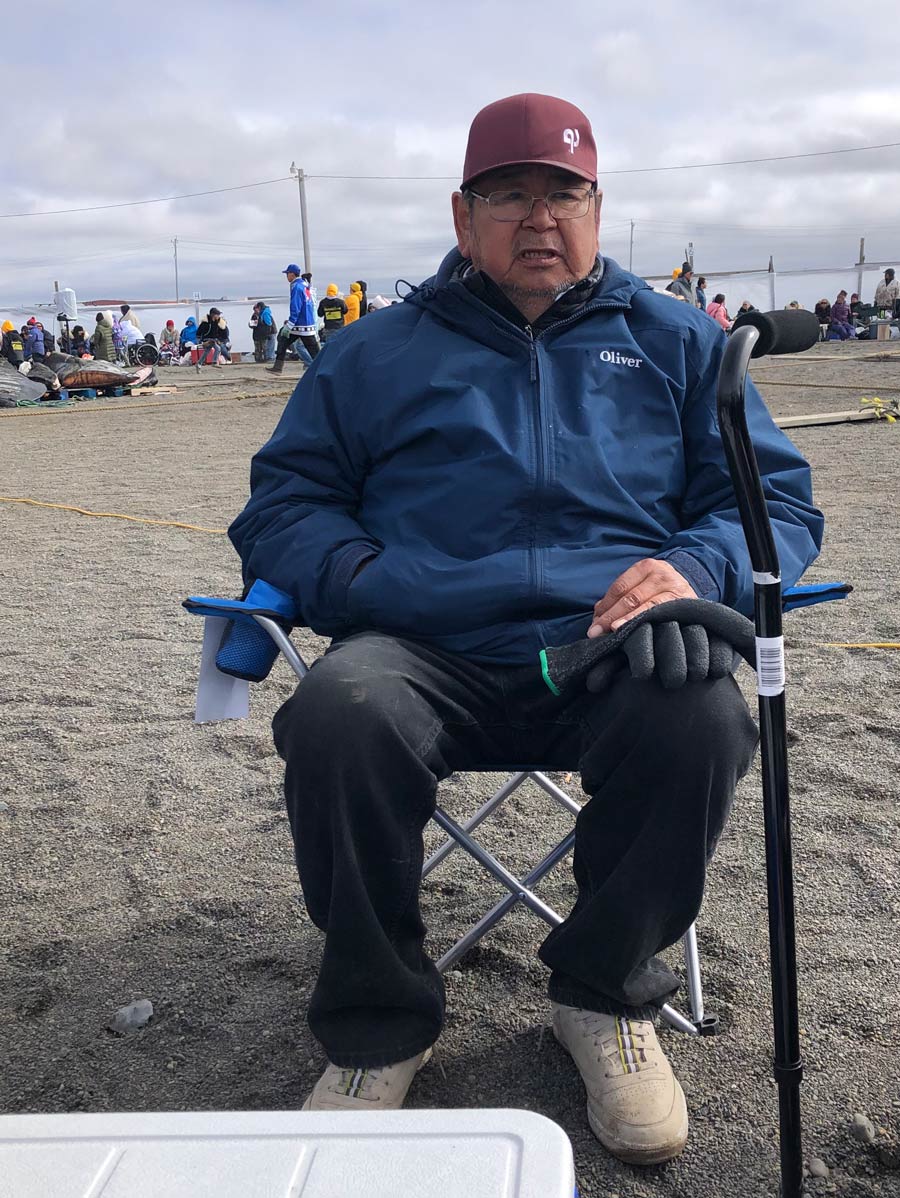
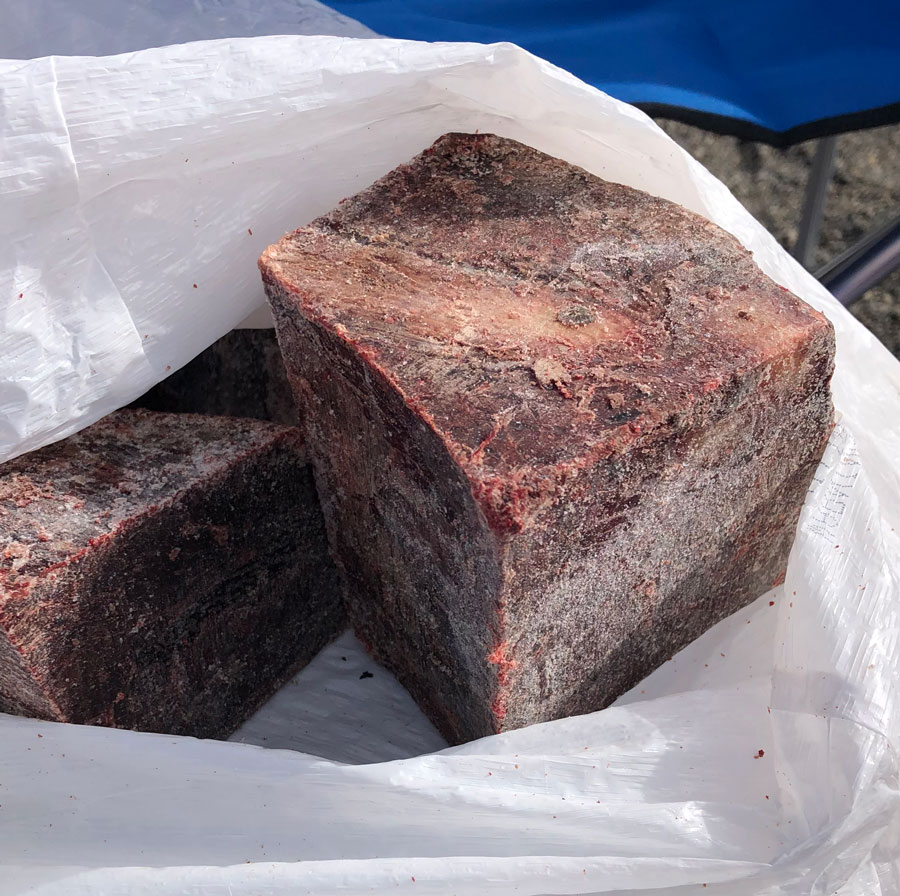
The joy is palpable as the year of Covid has taken its toll in village Alaska, and Utqiagvik is no exception—so the Nalukataq was extra special this year. Seeing traditions continue, families working hard together, and others enjoying the gift from the ocean has brought a sense of renewal and continuity.